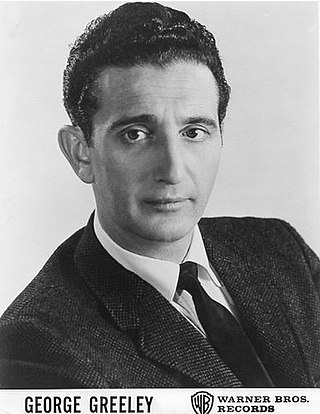Richard Arnold "Groove" Holmes was an American jazz organist who performed in the hard bop and soul jazz genre. He is best known for his 1965 recording of "Misty".

Frank Rosolino was an American jazz trombonist.

Pye Records was a British record label. Its best known artists were Lonnie Donegan (1956–1969), Petula Clark (1957–1971), the Searchers (1963–1967), the Kinks (1964–1971), Sandie Shaw (1964–1971), Status Quo (1968–1971) and Brotherhood of Man (1975–1979). The label changed its name to PRT Records in 1980, before being briefly reactivated as Pye Records in 2006.

Mobile Fidelity Sound Lab is a record label that specialized in the production of audiophile issues. The company produces reissued vinyl LP records, compact discs, and Super Audio CDs and other formats.

Joseph Carl Firrantello, known as Joe Farrell, was an American jazz multi-instrumentalist who primarily performed as a saxophonist and flutist. He is best known for a series of albums under his own name on the CTI record label and for playing in the initial incarnation of Chick Corea's Return to Forever.

Claus Ogerman was a German arranger, conductor, and composer best known for his work with Billie Holiday, Antonio Carlos Jobim, Frank Sinatra, Michael Brecker, and Diana Krall.

Anita Jean Kerr was an American singer, arranger, composer, conductor, pianist, and music producer. She recorded and performed with her vocal harmony groups in Nashville, Los Angeles, and Europe.

James Moody was an American jazz saxophone and flute player and very occasional vocalist, playing predominantly in the bebop and hard bop styles. The annual James Moody Jazz Festival is held in Newark, New Jersey.
Autumn Records was a 1960s San Francisco–based pop record label. Among the notable acts on its roster was The Beau Brummels, a band who released a pair of top 20 singles, "Laugh, Laugh" and "Just a Little".
John Keating was a Scottish musician, songwriter, arranger and trombonist.
Don Ralke was an American music arranger, composer, and record producer, working for four decades in the Hollywood studio system in films, television, and pop recordings.

Charles Louis Domanico was an American jazz bassist who played double bass and bass guitar on the West Coast jazz scene.
Vincent Ned DeRosa was an American hornist who served as a studio musician for Hollywood soundtracks and other recordings from 1935 until his retirement in 2008. Because his career spanned over 70 years, during which he played on many film and television soundtracks and as a sideman on studio albums, he is considered to be one of the most recorded brass players of all time. He set "impeccably high standards" for the horn, and became the first horn for Henry Mancini, Lalo Schifrin, Alfred Newman, and John Williams, among others, with Williams calling him "one of the greatest instrumentalists of his generation." DeRosa contributed to many of the most acclaimed albums of the 20th century, including some of the biggest-selling albums by artists as diverse as Frank Sinatra, Barry Manilow, Frank Zappa, Boz Scaggs, Ella Fitzgerald, Harry Nilsson, Stan Kenton, Henry Mancini, The Monkees, Sammy Davis Jr., and Mel Tormé.

George Greeley was an Italian-American pianist, conductor, composer, arranger, recording artist and record producer who is known for his extensive work across the spectrum of the entertainment industry. Starting as an arranger and pianist with several notable big bands in the 1940s, he segued into the Hollywood radio scene, working on several nationally broadcast variety programs. After conducting an Army Air Force Band during World War II, he was hired by Columbia Pictures as a staff pianist and orchestrator. He worked as pianist on several hundred motion pictures, worked with many famous composers orchestrating their soundtrack compositions, and created original compositions of his own in several dozen movies. It was Greeley's hands that performed the piano parts that Tyrone Power mimed in The Eddy Duchin Story. Concurrent with his work at Columbia Pictures, George Greeley also worked at Capitol Records as music director, pianist, and conductor for many artists such as Gordon MacRae, Jane Powell, Jo Stafford, Frankie Laine, and Doris Day. He was hired in the late 1950s by the newly established Warner Brothers Records. George Greeley arranged, orchestrated and performed as primary artist for a series of hit recordings entitled "Popular Piano Concertos." As music tastes changed in the late 1960s, Greeley had already moved into television, composing themes and music for popular TV series like My Favorite Martian,The Ghost and Mrs. Muir,Nanny and the Professor, and Small Wonder. He performed as featured piano soloist and as guest conductor in concert appearances around the world. He died from emphysema at age 89 in Los Angeles, California.

Jorge "Jordi" Rossy is a spanish jazz drummer, pianist and vibraphonist.
Lyle Joseph Ritz was an American musician, known for his work on ukulele and bass. His early career in jazz as a ukulele player made him a key part of the Hawaii music scene in the 1950s. By the 1960s, he had begun working as a session musician, more often on double bass or electric bass guitar. His prominence in the Los Angeles session scene made him a part of the Wrecking Crew, an informal group of well-used Los Angeles–based musicians. Ritz contributed to many American pop hits from the mid 1960s to the early 1980s. Starting in the mid-1980s, a rediscovery of his earlier ukulele work led to him becoming a fixture in live festivals, and a revival of his interest in playing the ukulele. He was inducted to both the Ukulele Hall of Fame Museum and the Musicians Hall of Fame and Museum in 2007.
Leo De Gar Kulka was a Czech-born American record producer, recording engineer and educator. Starting in Los Angeles at Autumn Records in the 1960s, he later founded the San Francisco studio Golden State Recorders, trade school College for Recording Arts and audiophile record label Sonic Arts. Kulka is considered a pioneer in the modern recording industry.
Golden State Recorders was a San Francisco recording studio owned by Leo De Gar Kulka. Some of the albums recorded at the studio were Brewer & Shipley's second album Weeds in 1969, sessions for The Beau Brummels originally recorded between 1964-1966 and released as San Fran Sessions in 1996, and The Grateful Dead's Birth of the Dead, recorded in 1965 and released in 2003.
This is the discography of American jazz musician Paul Motian.

Jim Hall was an American jazz guitarist, composer, and arranger. His discography consists of 39 studio albums, 10 live albums, 1 EP, 1 single, 10 videos, and 22 compilations, all released between 1957 and 2016. In addition, he was a sideman on numerous albums by other artists.










